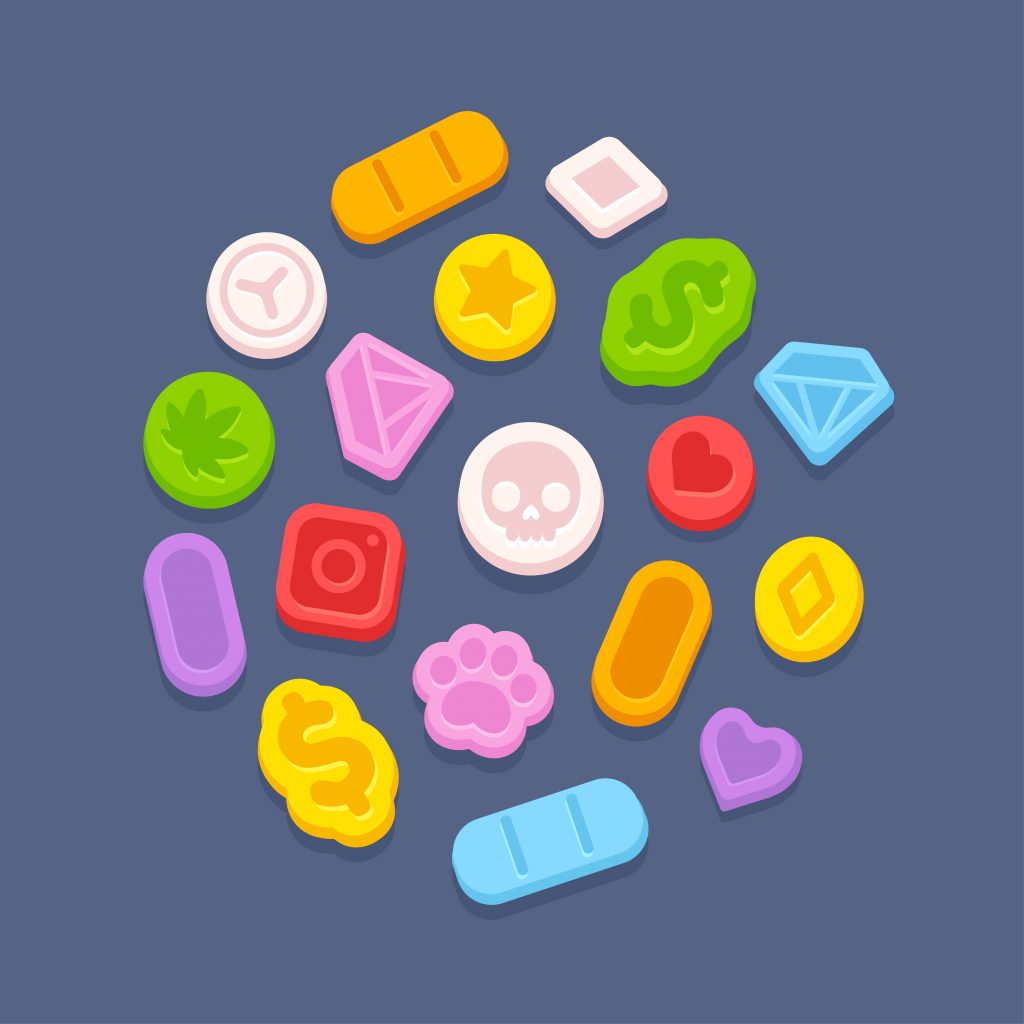When do you think that drug education should really start? In today’s world, where the exposure of children to drugs and related issues is increasingly unavoidable, the question of whether drug education should be a part of primary school curricula is more relevant than ever.
With instances of drug use and its consequences becoming more visible in society, including among younger age groups, there is a growing need to address this sensitive topic in an age-appropriate and effective manner. For too long, the war on drugs, ‘drugs are bad’, narrative has not worked. So what’s the alternative? Would teaching children about drugs in a nuanced way at a younger age actually help? Let’s find out.
The Purpose of Drug Education
If you want to attend the most outdated class in any school, one where the information feels like it’s been pulled out of a book from the middle ages and the teacher looks awkward the entire time, then you probably should go to a sex or drug education class. These lessons, despite being of huge importance, have never really been given the attention that they deserve. You can picture it now, an old teacher stands up and explains that ‘drugs are bad’ and ‘will destroy your life’, with a bunch of kids giggling in the background. Absolutely no nuance or explanation or questions and answers. The aim is simple: do your best to make as many kids fear drugs as possible and, in doing so, hope that this stops them from ever doing them. Does it work? No. Felsted School writes:
“The role of Drug Education is to provide all pupils with the opportunity to acquire knowledge and understanding about the drugs – the benefits of drugs and the risks of drug misuse – and to ensure that they are equipped with the information and skills they need to make healthy, informed choices.”
In an ideal world, this would be the approach that all schools would take. You lay out the information in a non-judgemental way, and allow the children to grow up and make – as it says – informed decisions. But is this actually happening? Let’s delve into the current situation.
The Current Situation
The need for drug education in primary schools is evident. This is because, whether people like it or not, children as old as 10 or 11 have been reported to have been experimenting with various drugs. A BBC report highlights a particular situation in Tees, England, where young children, some as young as 10, are increasingly being found in possession of vapes and cannabis.The report sheds light on the reality that children are being exposed to drugs at a younger age, often in their own communities or even within their homes. This exposure is not limited to mere awareness but extends to actual possession and, in some cases, usage. The involvement of children in drug-related activities, whether as users or carriers, highlights a need for a nuanced education approach. The BBC writes:
“Child exploitation lead Gill Collier said… educating children that are preparing to leave primary school was “absolutely key” to reducing harm in their teenage years. The charity is collaborating with local services to deliver sessions on cannabis, alcohol, vaping and child criminal exploitation. Nearly 2,000 children at primary schools and pupil referral units had received the training.”
The most recent NHS survey asked school-age children about the use of drugs – including smoking, drinking and alcohol – and found that 18% of 11-15 year olds reported that they had tried one or more of these substances. In England, primary school ends and secondary school begins at around the age of 11 or 12. These pre-secondary school years are vital in offering education to those who may be about to (or already have) witnessed the world of drugs.
The Problem
For a very long time, the ‘say no’ campaign has been the default in many western schools when it comes to drug education. This campaign began in the 80s and 90s in the US. This message would show a variety of situations – perhaps in dodgy made videos – where a young person would be encouraged to take drugs and it would ruin their lives or relationships. In these lessons, kids would be taught to say no drugs and, if they did, they would thus avoid such horrible situations. The problem is, for every horror story taught in these underfunded lessons, a different story of fun and euphoria would be told by someone’s older brother or sister about a night they took ecstasy and it changed their lives.
This, it seems, is two opposing pieces of information – which should they believe? The truth is, drugs are – in essence – nuanced. You can try and argue for and against as much as you like, but ultimately some people hate them, some people love them and some people think ‘meh’. Any child who grows up will most likely eventually learn that through trial and error, however, what is the best way to prepare them for that? The Drug Abuse Resistance Education campaign in the US, which has involved police going into schools to warn children about drugs since 1983, has found problems in the ‘say no’ approach. The Scientific American writes:
“In a 2002 review psychologist Chudley Werch, now president of PreventionPLUSWellness in Jacksonville, Fla., and health educator Deborah Owen of the University of North Florida reported a slight tendency for teens who went through D.A.R.E. to be more likely to drink and smoke than adolescents not exposed to the program.”
But why is this? Whilst children are like sponges, they also learn from experience. They know not to wait for the green light because they don’t want to be hit by a car, however, as they get older, they soon realise that sometimes – if there are no cars coming – there’s perhaps no need to wait for the green light. In a way, drug education is similar. You can tell children to say no to drugs, and outline all of the horror stories that you want, but the truth is that one day they’ll realise that drugs do have their benefits too. Professor Bonnie Halpern-Felsher, who runs the Stanford drug education for young adult research programme, says:
“The most important tenet of drug education is to be honest… And to have a balanced perspective. We cannot lie, we cannot exaggerate to teens.”.. Students need to know the facts about drugs — including their benefits and their harms.”

Drug Education Techniques
So what would the correct techniques be, when teaching young people about the world of drugs that they might have already encountered or are about to encounter? The DSM drug charity writes out a list of what has proven to work in education around drugs and what has not. Here are some of these:
What Works
- Interactive Teaching
- Trained Teachers
- Series of lessons over several years
- Accurate and current information
- Less fear-mongering
What Does Not
- One-off sessions
- Lecturing methods
- Information-only approach
- Use of fear-mongering
- Only mentioning ethical or moral decisions
- Untrained teachers
In the words of Dr Suze Gage, quoted in the DSM page, say ‘why’ to drugs. Encouraging young people to question the use of drugs, rather than simply saying no, is believed to be a far more modern approach to substance education. It is clear that teaching children like adults – with nuanced conversations about pros and cons – is a far more effective technique. In addition, people should be trained in drug education. It shouldn’t just be some P.E teacher or religious studies professor who has a break from his or her regular classes. There needs to be training, just like there is for any other subject. These lessons need to be fun, engaging and interactive – with the goal of giving children the correct information for them to make the right decisions.
The Statistics
The GOV UK website highlights that:
“Approximately 1 in 11 adults aged 16 to 59 years (9.2%; approximately 3 million adults) and approximately 1 in 5 adults aged 16 to 24 years (18.6%; approximately 1.1 million adults) reported last year drug use in the year ending June 2022; there was no change compared with the year ending March 2020.”
This has been the same for two years and will probably remain the same for many years to come. Therefore, we know that a great deal of young people will – at some point – have the opportunity to try recreational drugs. The question is this: do we want them to have been taught to say no because ‘drugs are bad’, and then for them to witness some of their friends or people they know undoubtedly having a good time? Or, do we want them to have been taught about the truth and nuance of drugs – benefits and burdens – and for them to make educated judgements based on that? That way, even if they do decide to experiment, they’ll do so in a safe way – with all the important knowledge at hand. What do you think?
Drug Education in Primary Schools
Teaching children at a young age about drug education is not a negative concept, if it’s done in the correct way. We can ignore the truth as much as we like, but the facts are that children as young as 10 and 11 are now vaping, smoking and potentially using other substances, and educating them about these topics are important. However, it’s not just about facts, it’s about the techniques that are used in this education process. It’s time to stop the outdated ‘say no to drugs’, fear-mongering campaign and begin a new wave of nuance, contemporary information and truth.
Happy Winter readers. We’re happy to have you with us at Cannadelics.com; a news source here to bring you the best in independent reporting for the growing cannabis and hallucinogen fields. Join us frequently to stay on top of everything, and subscribe to our Cannadelics Weekly Newsletter, for updates straight to your email. Check out some awesome promos for cannabis buds, smoking devices and equipment like vapes, edibles, cannabinoid compounds, amanita mushroom products, and a whole bunch more. Let’s all get stoned together!









